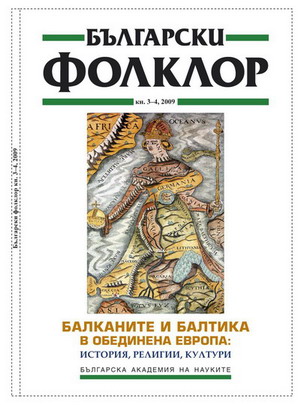„Чуждите” турци и „своите” помаци
“Alien” Turks and “Our” Pomaks
Author(s): Galina LozanovaSubject(s): Anthropology
Published by: Институт за етнология и фолклористика с Етнографски музей при БАН
Summary/Abstract: The paper explores the issue of Bulgarian Turks’ and Pomaks’ self-identity as resulting from specific historical and political factors which defined and stimulated/impeded its display from the after-Liberation period to nowadays. The processes of differentiation and self-identification of both Muslim communities took part in the conditions of systematic pressure from central and local authorities, regardless if they applied “stick” or “carrot” approach. The fact that the state policy was different towards Turks and towards Pomaks played an important role. As a result their identities have gone through changes which gradually distanced them from the original (Ottoman millet) model of identification according to confessional belonging. At the end of the 20th century the empirical surveys registered two separate cases: a) Turkish minority with clearly displayed ethnic identity and hierarchical consciousness; and on the contrary, b) Pomaks generally prefer to self-identify themselves along religious lines as ‘Muslims’ while in relation to their ethnicity they are dubious and display ‘multiple context-sensitive identities’ (Brunnbauer), or apply the strategy of ‘situational switching’ (Karagiannis). The recently published conclusions of Mihail Gruev include three levels: 1) Bulgarian civic identity; 2) awareness of an internal unity of the Pomak community, based on the sense of common historical fate and solidarity; and 3) local identity, based on the feeling of cultural differences in the community itself. The second level is very important as it shows the genuine bond among representatives of the Pomak community irrespective of the fact that they may declare one of three “horizontal” identities: Bulgarian, Turkish, or Muslim. For the majority of the Pomaks the Bulgarian identity coincides with the civic identity; however, a few are ready to acknowledge Bulgarian ethnicity as well. The Turkish identity that for a long period of time has been creating protective barrier against the assimilation state policy is gradually fading away, and most probably will blend with the Muslim identity and the common name “Pomaks”, freed from negative connotations.
Journal: Български фолклор
- Issue Year: XXXV/2009
- Issue No: 3-4
- Page Range: 114-121
- Page Count: 8
- Language: Bulgarian
- Content File-PDF

